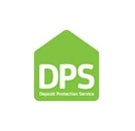Local landlords in Sheffield are being urged by Belvoir Sheffield, the leading letting agent in Sheffield to carry out a new type of risk assessment on their properties– to help control the threat of Legionnaires’ disease.
The Health andSafety Executive (HSE) is directing residential property landlords, or theirmanaging agents, to comply with a recently revised Approved Code of Practice–“Legionnaires’ disease: the control of legionella bacteriain water systems”.
Legionella arebacteria common in artificial water systems such as storage tanks, pipework,taps and showers. People can catch the disease if they inhale into their lungstiny water or vapour droplets carrying the bacteria.
Illness startswith flu-like symptoms, but can develop into lung infections or pneumonia,which can prove fatal in one in ten patients.
Rick Flay,Director at Belvoir Sheffield, who offer a wide range of property to rent in Sheffield, said: “The new guidance underlines new legal requirements for landlordsor their agents to ensure the risk from legionella – in all forms of water systems found in residential rented premises – is fully risk assessed and controlled.”
“Landlords and property management or lettings agents must identify and assess potential sources of exposure and take steps to prevent and control such risks – keeping detailed records of their findings and recommendations for at least five years.”
Whilst legionella bacteria are usually associated with larger water systems, such as cooling towers in commercial buildings and hospitals, they can thrive and multiply in hot or cold water systems and storage tanks in flats and houses, and can be spread through the property by showers and taps.
Rick, whose letting agency on Campo Lane in Sheffield, specialises in providing flats to let in Sheffield added: “There is now a need to check and inspect properties which may have a water supply with temperatures between 20C and 45C since plumbing systems need to run at 60C to kill off the bacteria.
“Particular attention should be paid to water storage and header tanks, thermostatic mixing valves and to the potential for any build-up of debris, such as sludge, in a system. A risk is also posed if water could become stagnant in an under used area of the property – for example taps, showers or washing machine pipes.”
Whilst the chance of legionella occurring in residential properties is minimal, the HSE says that recent research shows that it can be found in smaller domestic systems – hence the need for new legislation.
“All Belvoir offices throughout the UK have been given advice on how to carry out this new risk assessment properly and thoroughly and we shall be providing our local landlord clients with the relevant guidance,” Rick added.
“Different properties will require differing approaches – for example a new build property with a combi-boiler will present far less risk than a Victorian terrace with an old water system.”
There are a number of steps that can be taken, from disinfection of a system to insulation of pipework.
“Our main concern is to provide advice on this new Approved Code of Practice, so that landlords can understand their obligations and help protect the safety of their tenant, in particular those who may be elderly or vulnerable.”
Belvoir Lettings Agency Sheffield is the One Stop Specialists for Lettings including Property Management, Tenant Find, Investment and Wealth Management Advice, Fit-outs and Renovations, Furniture Packs and Investment Property Insurances and Buy To Let Mortgages.










